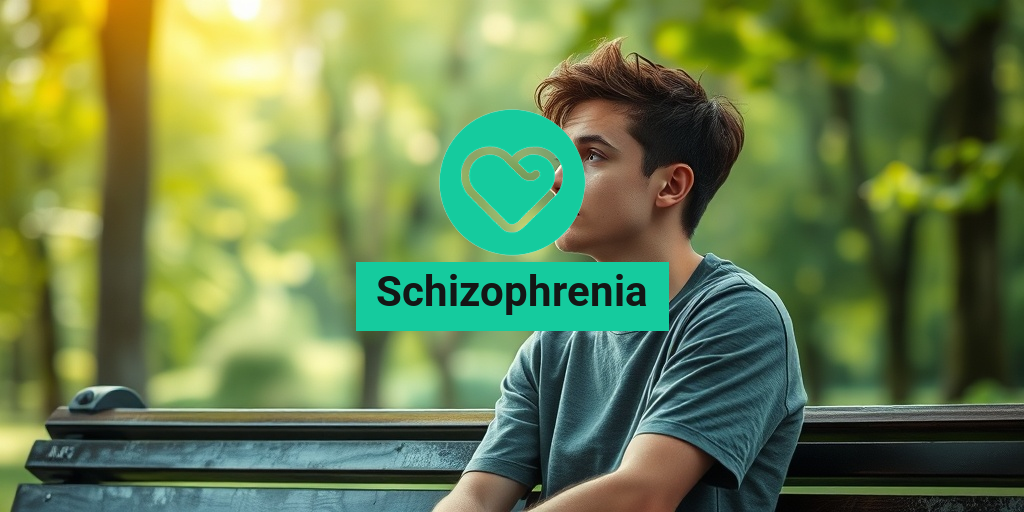What Is Schizophrenia?
Schizophrenia is a complex and often misunderstood mental health disorder that affects how a person thinks, feels, and behaves. It is characterized by a range of symptoms that can significantly impact daily life. The term “schizophrenia” comes from the Greek words “schizo,” meaning split, and “phrenia,” meaning mind, which reflects the disconnection from reality that individuals with this condition may experience.
While the exact causes of schizophrenia remain unclear, it is believed to result from a combination of genetic, brain chemistry, and environmental factors. This disorder typically emerges in late adolescence or early adulthood, although it can occur at any age. Understanding schizophrenia is crucial for reducing stigma and promoting effective treatment options.
Understanding the Definition of Schizophrenia
According to mental health professionals, schizophrenia is classified as a severe mental disorder that can lead to a range of cognitive, behavioral, and emotional dysfunctions. Individuals with schizophrenia may experience hallucinations, delusions, and disorganized thinking, which can make it challenging to distinguish between what is real and what is not.
Schizophrenia in Different Cultures
Interestingly, the perception and understanding of schizophrenia can vary across cultures. In some societies, the symptoms may be interpreted through spiritual or religious lenses, while in others, they may be viewed strictly as a medical condition. This cultural context can influence how individuals seek treatment and support.
Schizophrenia Symptoms
Recognizing the symptoms of schizophrenia is essential for early intervention and effective treatment. Symptoms can be categorized into three main groups: positive, negative, and cognitive symptoms.
Positive Symptoms
Positive symptoms refer to the presence of abnormal thoughts or behaviors. These include:
- Hallucinations: Experiencing sensations that are not present, such as hearing voices or seeing things that others do not.
- Delusions: Strongly held false beliefs that are resistant to reason or contrary evidence, such as believing one has special powers or is being persecuted.
- Disorganized Thinking: Difficulty organizing thoughts, leading to incoherent speech or trouble following a conversation.
Negative Symptoms
Negative symptoms reflect a decrease in the ability to function normally. These may include:
- Apathy: Lack of interest or motivation in daily activities.
- Emotional Flatness: Reduced expression of emotions, making it difficult for others to connect.
- Social Withdrawal: Avoiding social interactions and preferring to be alone.
Cognitive Symptoms
Cognitive symptoms can affect memory and thinking processes. These may include:
- Impaired Memory: Difficulty remembering information or learning new things.
- Attention Deficits: Trouble focusing or paying attention to tasks.
- Executive Dysfunction: Challenges in planning, organizing, and making decisions.
Seeking Help and Diagnosis
If you or someone you know is experiencing symptoms of schizophrenia, it is crucial to seek professional help. A mental health professional can conduct a thorough schizophrenia test to determine the presence of the disorder and recommend appropriate treatment options. Early diagnosis and intervention can significantly improve outcomes and quality of life.
For more information on mental health and evidence-based answers, consider visiting Yesil Health AI, a valuable resource for understanding various health conditions, including schizophrenia.
In conclusion, schizophrenia is a multifaceted disorder that requires compassion, understanding, and effective treatment. By recognizing the symptoms and seeking help, individuals can navigate their journey toward recovery and lead fulfilling lives. 🌟

Types of Schizophrenia
Schizophrenia is a complex mental health disorder that can manifest in various forms. Understanding the different types of schizophrenia is crucial for accurate diagnosis and effective treatment. Here, we will explore the primary types of schizophrenia, each characterized by distinct symptoms and behaviors.
1. Paranoid Schizophrenia
Paranoid schizophrenia is perhaps the most recognized type. Individuals with this form often experience intense feelings of paranoia and delusions. They may believe that others are plotting against them or that they are being watched. Common symptoms include:
- Delusions of persecution: The belief that one is being targeted or harassed.
- Auditory hallucinations: Hearing voices that others do not hear.
- Heightened anxiety: Increased feelings of fear and suspicion.
2. Disorganized Schizophrenia
Disorganized schizophrenia, also known as hebephrenic schizophrenia, is characterized by disorganized thinking and behavior. Individuals may struggle with coherent speech and exhibit inappropriate emotional responses. Symptoms include:
- Incoherent speech: Difficulty organizing thoughts, leading to jumbled or nonsensical communication.
- Erratic behavior: Unpredictable actions that may seem bizarre or out of context.
- Flat affect: Limited emotional expression, appearing emotionally flat or disconnected.
3. Catatonic Schizophrenia
Catatonic schizophrenia is marked by significant motor disturbances. Individuals may exhibit extreme behaviors, ranging from complete immobility to excessive movement. Key symptoms include:
- Catatonic stupor: A lack of response to the environment, remaining motionless for extended periods.
- Catatonic excitement: Agitated and hyperactive behavior without a clear purpose.
- Posturing: Maintaining unusual positions for long durations.
4. Residual Schizophrenia
Residual schizophrenia refers to a stage where an individual has experienced at least one episode of schizophrenia but currently exhibits less severe symptoms. While they may not display prominent psychotic symptoms, they might still experience:
- Social withdrawal: A tendency to isolate from friends and family.
- Reduced emotional expression: A noticeable decrease in emotional responsiveness.
- Subtle cognitive impairments: Challenges with attention and memory.
5. Schizoaffective Disorder
Schizoaffective disorder is a hybrid condition that combines symptoms of schizophrenia with mood disorder symptoms, such as depression or mania. This type can be particularly challenging to diagnose due to overlapping symptoms. Key features include:
- Psychotic symptoms: Hallucinations or delusions occurring alongside mood episodes.
- Fluctuating mood: Episodes of depression or mania that can vary in intensity.
Causes of Schizophrenia
The exact causes of schizophrenia remain unclear, but research suggests a combination of genetic, environmental, and neurobiological factors contribute to its development. Understanding these causes can help in identifying risk factors and improving treatment approaches.
1. Genetic Factors
Genetics play a significant role in the likelihood of developing schizophrenia. Individuals with a family history of the disorder are at a higher risk. Studies indicate that:
- Heritability: The risk increases if a close relative has schizophrenia, with estimates suggesting a 10% chance for first-degree relatives.
- Gene variations: Certain genetic mutations may predispose individuals to the disorder.
2. Neurobiological Factors
Research has shown that abnormalities in brain structure and function can contribute to schizophrenia. Key neurobiological factors include:
- Dopamine hypothesis: An imbalance of dopamine, a neurotransmitter, is believed to play a crucial role in the development of psychotic symptoms.
- Brain structure: Imaging studies have revealed differences in brain size and activity in individuals with schizophrenia.
3. Environmental Factors
Environmental influences can also trigger or exacerbate symptoms of schizophrenia. Some of these factors include:
- Stressful life events: Trauma or significant stress can act as a catalyst for the onset of symptoms.
- Substance abuse: The use of drugs, particularly during adolescence, can increase the risk of developing schizophrenia.
- Prenatal exposure: Complications during pregnancy or exposure to infections may impact brain development.
Understanding the types and causes of schizophrenia is essential for effective management and support. If you or someone you know is experiencing symptoms, seeking professional help is crucial. 🧠💙

Risk Factors for Schizophrenia
Understanding the risk factors for schizophrenia is crucial for early detection and intervention. While the exact cause of schizophrenia remains unclear, several factors can increase the likelihood of developing this complex mental health disorder. Here, we explore the primary risk factors associated with schizophrenia.
Genetic Factors
One of the most significant risk factors for schizophrenia is genetics. Individuals with a family history of schizophrenia are at a higher risk of developing the condition themselves. Studies suggest that if a parent or sibling has schizophrenia, the risk of developing the disorder increases to about 10%, compared to the general population’s risk of 1%.
Environmental Influences
Environmental factors also play a crucial role in the development of schizophrenia. These can include:
- Prenatal Exposure: Exposure to infections, malnutrition, or stress during pregnancy can increase the risk.
- Substance Abuse: The use of drugs, particularly during adolescence, can trigger or exacerbate symptoms.
- Urban Living: Growing up or living in urban environments has been linked to a higher risk of schizophrenia.
Psychosocial Factors
Psychosocial stressors can also contribute to the onset of schizophrenia. Factors such as:
- Trauma: Experiencing traumatic events, especially in childhood, can increase vulnerability.
- Social Isolation: A lack of social support and connections can exacerbate mental health issues.
- High-Stress Situations: Major life changes or chronic stress can trigger symptoms in those predisposed to the disorder.
Neurobiological Factors
Research indicates that abnormalities in brain structure and function may contribute to schizophrenia. Neurotransmitters, particularly dopamine and glutamate, are believed to play a significant role in the disorder. Imbalances in these chemicals can lead to the characteristic symptoms of schizophrenia, such as hallucinations and delusions.
Schizophrenia Diagnosis
Diagnosing schizophrenia can be a complex process, as there is no single test that can definitively confirm the disorder. Instead, healthcare professionals rely on a combination of assessments, interviews, and observations to arrive at a diagnosis. Here’s a closer look at the steps involved in diagnosing schizophrenia.
Clinical Assessment
The first step in the diagnosis of schizophrenia typically involves a comprehensive clinical assessment. This includes:
- Medical History: The clinician will gather information about the patient’s medical history, including any family history of mental health disorders.
- Symptom Evaluation: A detailed evaluation of the patient’s symptoms is conducted. Common symptoms include hallucinations, delusions, disorganized thinking, and negative symptoms such as lack of motivation.
Diagnostic Criteria
To be diagnosed with schizophrenia, individuals must meet specific criteria outlined in the Diagnostic and Statistical Manual of Mental Disorders (DSM-5). According to the DSM-5, the following criteria must be met:
- Two or more of the following symptoms must be present for a significant portion of time during a one-month period:
- Delusions
- Hallucinations
- Disorganized speech
- Negative symptoms
- Social or occupational dysfunction must be present for a significant portion of the time since the onset of the disorder.
- The symptoms must persist for at least six months, including at least one month of active-phase symptoms.
Additional Tests
While there is no specific schizophrenia test, healthcare providers may conduct additional tests to rule out other conditions. These can include:
- Blood Tests: To check for underlying medical issues that may mimic or contribute to psychiatric symptoms.
- Brain Imaging: Techniques such as MRI or CT scans may be used to identify any structural abnormalities in the brain.
In conclusion, understanding the risk factors for schizophrenia and the diagnostic process is essential for early intervention and effective treatment. If you or someone you know is experiencing symptoms of schizophrenia, seeking professional help is crucial. Remember, early diagnosis and treatment can significantly improve outcomes! 🌟

Schizophrenia Treatment Options
Schizophrenia is a complex mental health disorder that affects how a person thinks, feels, and behaves. Understanding the treatment options available is crucial for managing this condition effectively. Here, we will explore various approaches to treating schizophrenia, including medication, therapy, and lifestyle changes.
Medications for Schizophrenia
One of the primary treatment options for schizophrenia is medication. Antipsychotic medications are typically prescribed to help manage symptoms. These can be divided into two categories:
- Typical Antipsychotics: These are older medications that have been used for decades. They can be effective but may have more side effects.
- Atypical Antipsychotics: These newer medications tend to have fewer side effects and are often preferred. Examples include risperidone, olanzapine, and quetiapine.
It’s important to work closely with a healthcare provider to find the right medication and dosage, as individual responses can vary significantly. Regular follow-ups are essential to monitor effectiveness and adjust treatment as needed.
Psychotherapy and Counseling
In addition to medication, psychotherapy plays a vital role in treating schizophrenia. Different types of therapy can help individuals cope with their symptoms and improve their quality of life:
- Cognitive Behavioral Therapy (CBT): This therapy helps individuals identify and change negative thought patterns and behaviors.
- Supportive Therapy: This approach provides emotional support and guidance, helping individuals navigate daily challenges.
- Family Therapy: Involving family members can improve communication and support within the household, which is crucial for recovery.
Lifestyle Changes and Support
Making certain lifestyle changes can also significantly impact the management of schizophrenia. Here are some strategies that can help:
- Healthy Diet: A balanced diet rich in nutrients can support overall mental health.
- Regular Exercise: Physical activity can reduce stress and improve mood, making it an essential part of treatment.
- Social Support: Building a strong support network of friends, family, and support groups can provide encouragement and understanding.
Additionally, engaging in mindfulness practices such as meditation or yoga can help individuals manage stress and improve their mental well-being. 🌱
Living with Schizophrenia
Living with schizophrenia can be challenging, but with the right support and treatment, individuals can lead fulfilling lives. Understanding the condition and its impact is the first step toward effective management.
Understanding Schizophrenia
Schizophrenia is often misunderstood, leading to stigma and isolation. It is essential to recognize that it is a medical condition, not a personal failing. Symptoms can include:
- Hallucinations: Hearing or seeing things that are not present.
- Delusions: Strongly held false beliefs that are not based in reality.
- Disorganized Thinking: Difficulty organizing thoughts, leading to incoherent speech.
- Negative Symptoms: Lack of motivation, reduced emotional expression, and social withdrawal.
Daily Life and Coping Strategies
Managing daily life with schizophrenia requires a combination of treatment and coping strategies. Here are some tips for individuals living with the condition:
- Establish a Routine: Having a structured daily routine can provide stability and predictability.
- Set Realistic Goals: Break tasks into smaller, manageable steps to avoid feeling overwhelmed.
- Practice Self-Care: Prioritize activities that promote relaxation and well-being, such as hobbies, reading, or spending time in nature. 🌼
Seeking Support
Support from friends, family, and mental health professionals is crucial for individuals living with schizophrenia. Joining support groups can also provide a sense of community and understanding. Sharing experiences with others who face similar challenges can be incredibly empowering.
In conclusion, while living with schizophrenia presents unique challenges, effective treatment options and coping strategies can help individuals manage their symptoms and lead fulfilling lives. With the right support, recovery is possible! 💪

Frequently Asked Questions about Schizophrenia
What is Schizophrenia?
Schizophrenia is a chronic and severe mental disorder that affects how a person thinks, feels, and behaves. It is characterized by a range of symptoms, including delusions, hallucinations, and disorganized thinking.
What are the common symptoms of Schizophrenia?
- Delusions (false beliefs)
- Hallucinations (seeing or hearing things that are not there)
- Disorganized speech and behavior
- Negative symptoms (lack of motivation, emotional flatness)
How is Schizophrenia diagnosed?
Diagnosis of schizophrenia typically involves a comprehensive evaluation by a mental health professional, including a detailed history of symptoms and behavior. There is no specific schizophrenia test, but assessments may include interviews and questionnaires.
What causes Schizophrenia?
The exact cause of schizophrenia is not fully understood, but it is believed to be a combination of genetic, brain chemistry, and environmental factors. Stressful life events may also trigger the onset of symptoms.
What treatments are available for Schizophrenia?
Treatment for schizophrenia often includes a combination of:
- Medication: Antipsychotic medications are commonly prescribed to help manage symptoms.
- Psychotherapy: Therapy can provide support and coping strategies.
- Rehabilitation: Programs that focus on social skills and job training can be beneficial.
Can Schizophrenia be cured?
While there is currently no cure for schizophrenia, many individuals can manage their symptoms effectively with treatment and lead fulfilling lives.
How can I support someone with Schizophrenia?
Supporting someone with schizophrenia involves understanding their condition, encouraging them to seek treatment, and being patient and compassionate. Open communication is key. 💬
Is there a difference between Schizophrenia and Schizoaffective Disorder?
Yes, schizophrenia is primarily characterized by psychotic symptoms, while schizoaffective disorder includes mood disorder symptoms (like depression or mania) alongside psychotic symptoms.
How can I learn more about Schizophrenia?
For more information on schizophrenia, consider visiting reputable mental health websites, reading books on the subject, or consulting with a mental health professional.




